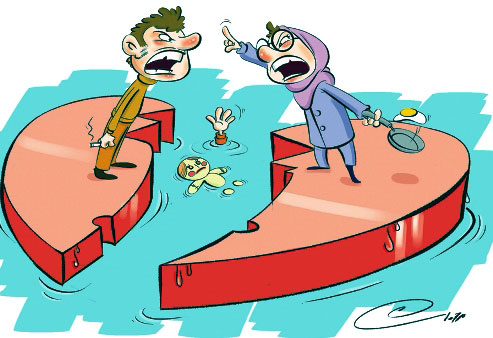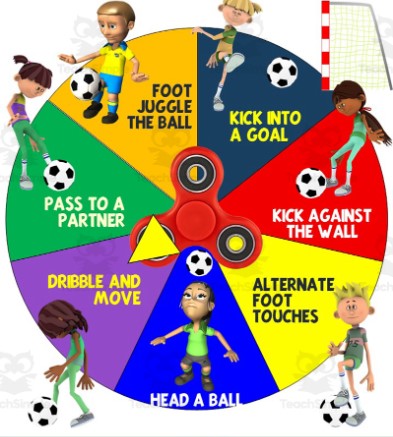بمپوری، ادهم؛ بلوچی، سعید؛ حنیف ایوبی، محمد و حیدرزهی، مهدی. (1400). بررسی راهکارها و مهارت های ایجاد مثبت اندیشی در دانش آموزان. اولین کنفرانس بین المللی مطالعات میان رشته ای علوم بهداشتی، روانشناسی، مدیریت و علوم تربیتی، تهران.
پوررضوی، سیده صغری و حافظیان، مریم. (1396). اثربخشی آموزش مهارتهای مثبت اندیشی بر سازگاری اجتماعی، هیجانی و تحصیلی دانشآموزان. روان شناسی مدرسه و آموزشگاه، 6(1)، 26-47.
سیدابراهیمی، سیدعلی اصغر. (1399). اثربخشی شناخت درمانی مبتنی بر ذهن آگاهی و مثبت اندیشی بر بهبود سلامت روان، کمال گرایی و راهبردهای تنظیم شناختی هیجان در سرپرستان خانواده دچار اختلال افسردگی اساسی. فصلنامه خانواده درمانی کاربردی، 1(2)، 22-45.
شمسیان، محمد و پورمحمدقوچانی، کامران. (1401). اثربخشی آموزش درمان مبتنی بر مثبت اندیشی بر تنظیم شناختی هیجانات و افکار منفی تکرارشونده در دانشجویان. هشتمین همایش ملی مطالعات و تحقیقات نوین در حوزه علوم تربیتی، روانشناسی و مشاوره ایران، تهران.
علی داداشی، فریبا؛ ساسانی، مهرداد و گل محمد نژاد، غلامرضا. (1401). بررسی اثربخشی آموزش مهارت های مثبت اندیشی بر امید به زندگی و خود کارآمدی دانش آموزان دوره دوم متوسطه شهر تبریز. فصلنامه ایده های نوین روانشناسی، ۱۳(۱۷)، ۱-۱۵.
علی نقیپور، صدیقه. (1402). بررسی اثربخشی درمان شناختی رفتاری بر مهارتهای مثبت اندیشی و تعارضات بین فردی در فرزندان طلاق. پایاننامه کارشناسی ارشد روانشناسی اسلامی، دانشگاه پیام نور، واحد نطنز.
فیروزی، منیژه و بیرانوندی، مهتاب. (1399). اثربخشی CBT مبتنی بر مثبت اندیشی با استفاده از برنامه های کامپیوتری و شبکه های اجتماعی مجازی بر بهبود کیفیت زندگی بیماران مبتلا به کمر درد مزمن. بیهوشی و درد، 11(3)، 66-76.
کویلیام، سوزان. (1390). مثبت اندیشی و مثبت گرایی کاربردی. ترجمه فریده براتی سده و افسانه صادقی، تهران: انتشارات جوانه رشد.
محمدرضاخانی، زهرا و ساردوئی، غلامرضا. (1400). بررسی اثر بخشی درمان شناختی رفتاری بر مثبت اندیشی در دانش آموزان پسر افسرده پایه ششم ابتدایی شهر کرمان. فصلنامه روانشناسی و علوم رفتاری ایران، 6(28)، 130-144.
Adams, B. G., Meyers, M. C., & Sekaja, L. (2020). Positive leadership: Relationships with employee inclusion, discrimination, and well‐being. Applied Psychology, 69(4), 1145-1173.
A'yuninnisa, R. N. A., Haqqi, M. F. H., Rusli, N. B., & Puteri, N. (2020). Indonesian implicit leadership theory: Typical and positive leadership prototypes for Indonesian millennials. Asian Journal of Social Sciences and Management Studies, 7(1), 1-7.
Cameron, K. S. (2018). Positive leadership. Berrett Koehler Publishers, Inc.
Carnegie, A. (2018). Strengths-based leadership: Create a thriving workplace culture.
Cherkowski, S., Kutsyuruba, B., & Walker, K. (2020). Positive leadership: Animating purpose, presence, passion and play for flourishing in schools. Journal of Educational Administration, 58(4), 401-415.
Ciarrochi, J., Atkins, P. W., Hayes, L. L., Sahdra, B. K., & Parker, P. (2016). Contextual positive psychology: Policy recommendations for implementing positive psychology into schools. Frontiers in psychology, 7, 1561.
Cissna, K., & Schockman, H. E. (2020). Finding the key to positive leadership: Applying virtue ethics and inclusivity. New horizons in positive leadership and change: A practical guide for workplace transformation, 207-227.
Diener, E. (2009). Positive psychology: Past, present, and future. Oxford handbook of positive psychology, 2, 7-11.
González-Valero, G., Zurita-Ortega, F., Ubago-Jiménez, J. L., & Puertas-Molero, P. (2019). Use of meditation and cognitive behavioral therapies for the treatment of stress, depression and anxiety in students. A systematic review and meta-analysis. International journal of environmental research and public health, 16(22), 4394.
Lai, M. K., Leung, C., Kwok, S. Y., Hui, A. N., Lo, H. H., Leung, J. T., & Tam, C. H. (2018). A multidimensional PERMA-H positive education model, general satisfaction of school life, and character strengths use in Hong Kong senior primary school students: Confirmatory factor analysis and path analysis using the APASO-II. Frontiers in psychology, 9, 1090.
Lee Duckworth, A., Steen, T. A., & Seligman, M. E. (2005). Positive psychology in clinical practice. Annu. Rev. Clin. Psychol., 1(1), 629-651.
MacIntyre, P. D. (2016). So far so good: An overview of positive psychology and its contributions to SLA (pp. 3-20). Springer International Publishing.
Malinga, K. S., Stander, M., & Nell, W. (2019). Positive psychology: Moving towards an integrated definition and interventions. In L. E. Van Zyl & S. Rothman Sr.(Eds). Theoretical Approaches to Multi-Cultural Positive Psychological Interventions (pp. 201-228). Springer, Cham.
Martin, J., & Wright, S. (2017). The application of Cameron's positive leadership model in a New Zealand law enforcement organisation. New Zealand Journal of Employment Relations, 43(1), 36-55.
Maslow, A. H., & Rogers, C. (1979). Humanistic psychology. Journal of Humanistic Psychology, 19(3), 13-26.
McGovern, C. M., Arcoleo, K., & Melnyk, B. (2019). COPE for asthma: Outcomes of a cognitive behavioral intervention for children with asthma and anxiety. School Psychology, 34(6), 665.
Monzani, L. (2018). A model for positive leadership in Argentinean firms. In Authentic Leadership and Followership: International Perspectives (pp. 115-137). Cham: Springer International Publishing.
Park, G. H., & Corn, A. A. (2018). Positive psychology.
Pawelski, J. O. (2016). Defining the ‘positive’in positive psychology: Part I. A descriptive analysis. The Journal of Positive Psychology, 11(4), 339-356.
Peterson, C. (2009). Positive psychology. Reclaiming children and youth, 18(2), 3.
Podina, I. R., Cosmoiu, A., Rusu, P., & Chivu, A. (2020). Positive thinking is not adaptive thinking: a cognitive-behavioral take on interpretation bias modification for social anxiety. Journal of Rational-Emotive & Cognitive-Behavior Therapy, 38, 424-444.
Ramdas, S. K., & Patrick, H. A. (2019). Positive leadership behaviour and flourishing: the mediating role of trust in information technology organizations. South Asian Journal of Human Resources Management, 6(2), 258-277.
Rashid, T. (2015). Positive psychotherapy: A strength-based approach. The Journal of Positive Psychology, 10(1), 25-40.
Rudge, S., Feigenbaum, J. D., & Fonagy, P. (2020). Mechanisms of change in dialectical behaviour therapy and cognitive behaviour therapy for borderline personality disorder: a critical review of the literature. Journal of Mental Health.
Schimschal, S. E., & Lomas, T. (2019). Gritty leaders: The impact of grit on positive leadership capacity. Psychological Reports, 122(4), 1449-1470.
Seligman, M. (2010). Flourish: Positive psychology and positive interventions. The Tanner lectures on human values, 31(4), 1-56.
Seligman, M. E. (1999). Positive social science. Journal of Positive Behavior Interventions, 1(3), 181.
Seligman, M. E. (2012). Positive psychology in practice. John Wiley & Sons.
Sin, N. L., & Lyubomirsky, S. (2009). Enhancing well‐being and alleviating depressive symptoms with positive psychology interventions: A practice‐friendly meta‐analysis. Journal of clinical psychology, 65(5), 467-487.
Singh, K., Junnarkar, M., & Kaur, J. (2016). Measures of positive psychology. Development and Validation. Berlin: Springer.
Snyder, C. R., Lopez, S. J., Edwards, L. M., & Marques, S. C. (Eds.). (2020). The Oxford handbook of positive psychology. Oxford university press.

















